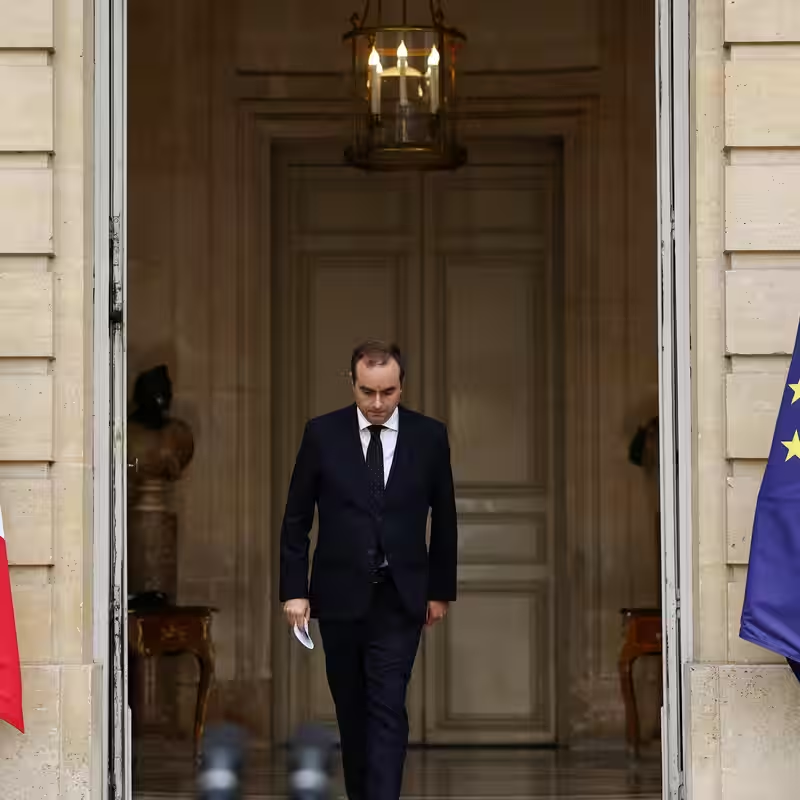France’s political instability has reached a breaking point. On Monday, Prime Minister Sébastien Lecornu resigned after less than a month in office—the third head of government to step down in under 12 months. The sudden departure has sent shockwaves through global markets and intensified fears that Europe’s second-largest economy may be spiraling toward fiscal collapse .
Why France’s Prime Minister Resignation Matters
Lecornu wasn’t just another short-lived appointee—he was President Emmanuel Macron’s last-ditch attempt to restore credibility after a series of failed coalitions and parliamentary gridlock. Tasked with presenting a critical budget to rein in France’s ballooning deficit, his resignation has left the nation without a clear economic roadmap at the worst possible time.
“This further increases the risk that France’s fiscal troubles will remain unresolved,” warned Salomon Fiedler, senior analyst at Berenberg Bank. “Economic policies are becoming less growth-friendly by the day.”
Market Mayhem: The Immediate Fallout
Investors reacted swiftly—and harshly:
- The CAC 40, France’s main stock index, plunged 2%.
- The euro dropped 0.6% against the U.S. dollar.
- France’s 10-year bond yield spiked to 3.57%—a 14-year high.
- The risk premium over German bonds (a key stability benchmark) widened to near-record levels.
These moves signal a deepening loss of confidence in France’s ability to manage its debt, which now exceeds 110% of GDP—a level economists describe as “unsustainable without structural reform.”
Roots of the Crisis: Macron’s Gamble Backfires
The current chaos traces back to mid-2024, when President Macron called snap parliamentary elections in a bold bid to weaken the far-right National Rally. Instead, the move fractured the National Assembly, leaving no party with a working majority.
Since then, three prime ministers—Élisabeth Borne, Gabriel Attal, and now Sébastien Lecornu—have tried and failed to build consensus on spending cuts, pension reforms, and tax policy. Each resignation has chipped away at investor trust and public morale.
What Happens Next?
With no budget on the horizon and winter approaching, France faces a perfect storm: rising energy costs, inflationary pressures, and a paralyzed government. Analysts warn that without urgent action, the country could face a sovereign debt downgrade or even require emergency support from the European Central Bank.
President Macron now faces an impossible choice: appoint yet another technocrat (risking further public cynicism) or call new elections (which could empower the far right). Neither option offers a clear path to stability.
France’s Political Instability: A Timeline
| Date | Event | Market Impact |
|---|---|---|
| June 2024 | Macron calls snap elections | Initial market volatility |
| September 2024 | Élisabeth Borne resigns | Bond yields rise 0.3% |
| March 2025 | Gabriel Attal steps down | Euro dips below $1.05 |
| October 6, 2025 | Sébastien Lecornu quits | CAC 40 drops 2%; bond yields hit 14-year high |
A Warning for Europe—and the World
France isn’t just any economy. As a founding EU member and nuclear power with global diplomatic influence, its instability threatens the entire eurozone. If France falters, the ripple effects could destabilize everything from EU fiscal policy to NATO cohesion.
For now, the world watches as a proud nation teeters on the edge—not from war or natural disaster, but from political exhaustion and economic denial.
Sources
The New York Times: Fears of Economic Turmoil Deepen in France as Another Prime Minister Quits
European Central Bank – Economic Data
Trading Economics: France Debt-to-GDP Ratio




